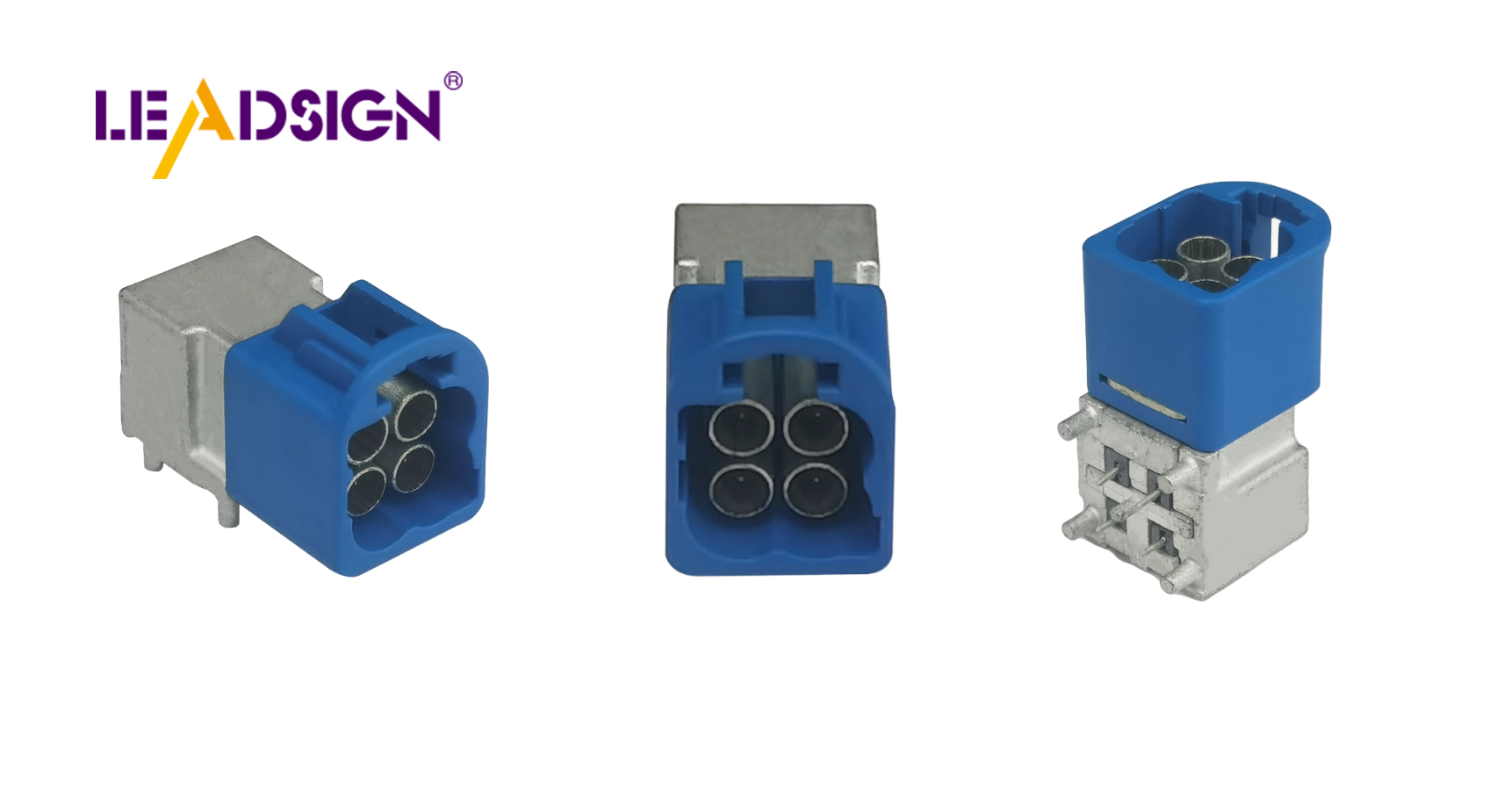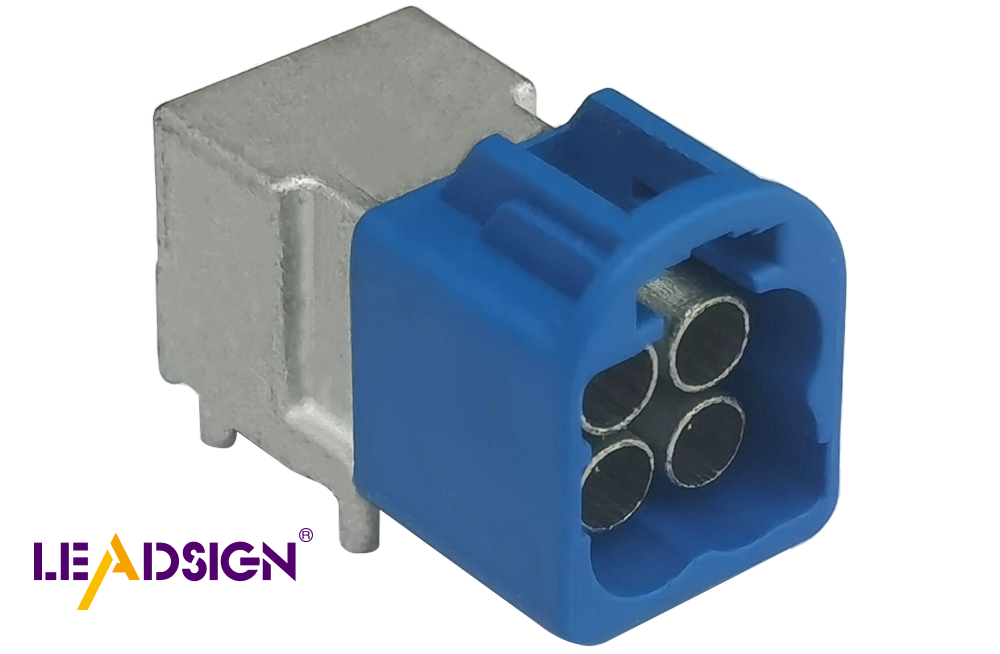Essential Guide to Types of Wire Connectors Automotive

Choosing the right automotive electrical connectors types for your car is crucial. These small components play a significant role in ensuring your vehicle operates efficiently and safely. High-quality automotive connectors can enhance performance and mitigate risks. Selecting the appropriate types improves the reliability of your car's systems, which directly impacts engine performance and passenger safety. Understanding the importance of these connectors enables you to make informed decisions for your vehicle over time.
Overview of Wire Connectors
Definition and Role
What are wire connectors?
Wire connectors are important parts in cars. They link electrical circuits so power and signals move smoothly in your car. These connectors come in different shapes and sizes for specific jobs. Using the right ones keeps your car's electrical system working well.
Role in automotive systems
In cars, wire connectors are very important. They join wires in the engine area and secure connections inside the car. This makes sure all electrical parts work right. Good connectors handle shaking, rust, and heat, making them key for a reliable car.
Common Uses in Vehicles
Electrical systems
Wire connectors are used a lot in a car's electrical parts. They connect things like lights, sensors, and control units. Stable connections stop shorts and fires. Good quality connectors make your car's electrical system last longer.
Communication systems
Besides electrical parts, wire connectors are crucial for communication inside cars. They help send data between parts like GPS and music systems. Reliable connectors make sure these systems work well, giving you info and fun while driving.
Types of Wire Connectors

Wire Terminals
Wire terminals are simple connectors. They link one wire to another part or wire. They come in different shapes for special uses.
Ring Terminals
Ring terminals have a round end that fits on bolts. You use them to keep connections tight in cars. Their shape makes sure the connection is strong and stable. These are best when you need a lasting connection.
Spade Terminals
Spade terminals look like forks. This shape lets you connect wires without removing screws fully. They're great for places where you change connections often. They're easy to use, so people like them for car wiring.
Multi-Pin Connectors
Multi-pin connectors join many wires at once. They're needed in systems with lots of connections.
Applications in Complex Systems
You find multi-pin connectors in tricky car systems. They work in engine and entertainment areas. These let many signals pass through one spot, making wiring easier.
Benefits of Multi-Pin Connectors
Multi-pin connectors have many perks. They cut down on separate connections, lowering failure chances. Many have locks to keep them secure, stopping accidents from disconnecting them. This keeps complex systems working well.
Weatherproof Connectors
Weatherproof connectors handle tough weather conditions well. They protect your car's electrical parts from water and dirt.
Importance in Harsh Environments
In cars, you face hard conditions often. Weatherproof connectors stop water, dust, and heat problems. This keeps your car's electric parts working even when it's rough outside.
Examples of Weatherproof Connectors
There are many weatherproof connector types available. Some have rubber seals or protective covers to block moisture out, ensuring they last long-term reliability is key for safe vehicle systems.
Quick Disconnects
Quick disconnects are easy to use for car wires. You don't need special tools, so they're great for fast fixes. They come in types like spade and butt connectors. These let you change wires quickly. Their design keeps connections safe but lets you unplug when needed.
Ease of Use
Quick disconnects are very simple to handle. They let you join or separate wires easily. This makes them perfect if you often change or test wires. The design helps make strong connections with little work, saving time on wiring jobs.
Common Applications
In cars, quick disconnects are used where you often need to fix or change things. You'll see them in lights, music systems, or parts needing regular care. They're popular because they're easy and flexible for both pros and DIY fans.
Automotive Electrical Connectors Types
Knowing different car connector types is key for best car performance. High-speed ones like FAKRA-Mini and HFM systems are top choices.
High-Speed FAKRA-Mini Connectors
FAKRA-Mini connectors are made for new cars needing fast data moves. They handle up to 20 GHz frequencies and 28 Gbps data speeds. They're useful in self-driving and media systems. Their small size saves space but keeps high power.
HFM Connector Systems
HFM connectors are the future of car connectors. They reach up to 20 GHz and support fast data rates too. Their tiny size saves space in your car while working well. They're perfect for real-time data needs like maps and driver help systems, making sure your car's connections stay strong.
Key Selection Tips
Electrical Needs
Current and Voltage Limits
When picking wire connectors, check current and voltage limits. These show how much electricity the connector can handle. If you pick one that's too weak, it might get too hot or break. Always look at the details to make sure it fits your car's needs.
Fit with Car Systems
It's important that connectors fit your car's systems. Not all connectors work with every car model or system. Make sure the ones you pick match your car’s wires and parts. This stops problems and keeps everything working smoothly.
Weather Suitability
Heat and Water Resistance
Car connectors need to handle different weather conditions. Look for ones that resist heat and water. These keep electrical parts safe from damage by hot, cold, or wet weather. Picking these ensures they work in all kinds of weather.
Right for Your Climate
Different places have different weather challenges. In humid areas, moisture-proof connectors are a must. If it's very hot or cold where you live, get connectors that can take both temperatures. Choosing right ones helps your car's electric parts last longer.
Strong Build
Shake and Hit Proof
Cars move a lot and shake often. Pick connectors that can handle shaking and bumps. They keep connections tight even on bumpy roads. This is key to stopping loose wires and keeping things reliable.
Lasting Quality
Strong build means lasting long and easy care too. Choose high-quality materials for long use. Also think about how easy it is to fix or change them when needed. Good quality saves time on fixes later.
Material Composition
Conductivity and Corrosion Resistance
When picking wire connectors for your car, think about how well they let electricity pass through and how they resist rust. Conductivity means how easily electricity flows in a material. High conductivity helps power move better, which is important for your car to work well. Copper is often chosen because it lets electricity flow easily. But, copper can rust over time, especially in tough weather.
Stopping rust is just as important. Rust can make connections weak and cause electrical problems. To stop this, many connectors use gold or tin coatings. These layers protect the metal from water and other things that cause rust. By choosing connectors with good conductivity and rust resistance, you keep your car's electrical parts working well for a long time.
Material Types and Their Benefits
Different materials give different benefits for car wire connectors. Here are some common ones:
Copper: Known for letting electricity flow well, copper is a top pick for many connectors. It helps power move easily in your car's systems but needs coatings to stop rust.
Aluminum: Lighter than copper, aluminum is used when weight matters. It conducts okay but might need special treatments to stop rusting.
Brass: This mix of copper and zinc balances conductivity and strength well. Brass connectors last long and resist wear, making them good for many car uses.
Gold-Plated: Gold plating stops rusting while keeping great conductivity. Though pricier, gold-plated connectors are best where reliability really counts.
Tin-Plated: Tin plating cheaply boosts resistance to rusting by covering copper or brass with a protective layer, making the connector last longer.
By knowing what different materials do best, you can choose the right wire connectors for your car wisely. Picking the right materials keeps your car's electric systems running smoothly over time.
Why Quality Matters
Keeping Safe
Stopping Electrical Problems
Pick good wire connectors to stop electrical problems. Good ones make sure power and signals move well in your car. This lowers the chance of shorts or other issues that can cause trouble. By choosing strong connectors, you keep your car's wires safe and avoid sudden breakdowns.
Protecting People Inside
Safety for people inside depends on good car systems. Good connectors help keep these systems working right. They make sure lights and communication tools work properly. When you use top-quality connectors, you help make driving safer for everyone in the car. This careful choice cuts down the risk of accidents from electrical problems.
Lasting Performance
Lowering Fix Costs
Buying strong wire connectors saves money on fixes later. Tough connectors handle tough weather and lots of use, cutting down wear. This means fewer parts to replace or fix, saving cash over time. Picking long-lasting ones keeps your car running well with less work.
Making Cars Work Better
Good connectors make cars run better overall. They help all parts, like music players and engines, work smoothly. Choosing quality ones makes your car more reliable for a nice drive every time. This care not only helps your car work better but also makes it last longer, giving peace of mind while driving. Good connectors make cars run better
Choosing the right wire connectors is very important for your car. They help your car's parts work well and safely. Think about things like how much electricity they need, if they can handle weather, and what they're made of. Pick strong and reliable ones to make your car last longer. Good connectors stop problems and save money on repairs. By choosing wisely, you make driving safer and more dependable.
See Also
Exploring Ford Fakra Connectors: A Comprehensive Guide
Understanding HSD Connectors Within Automotive Applications
Why FAKRA Connectors Matter in Automotive Systems

